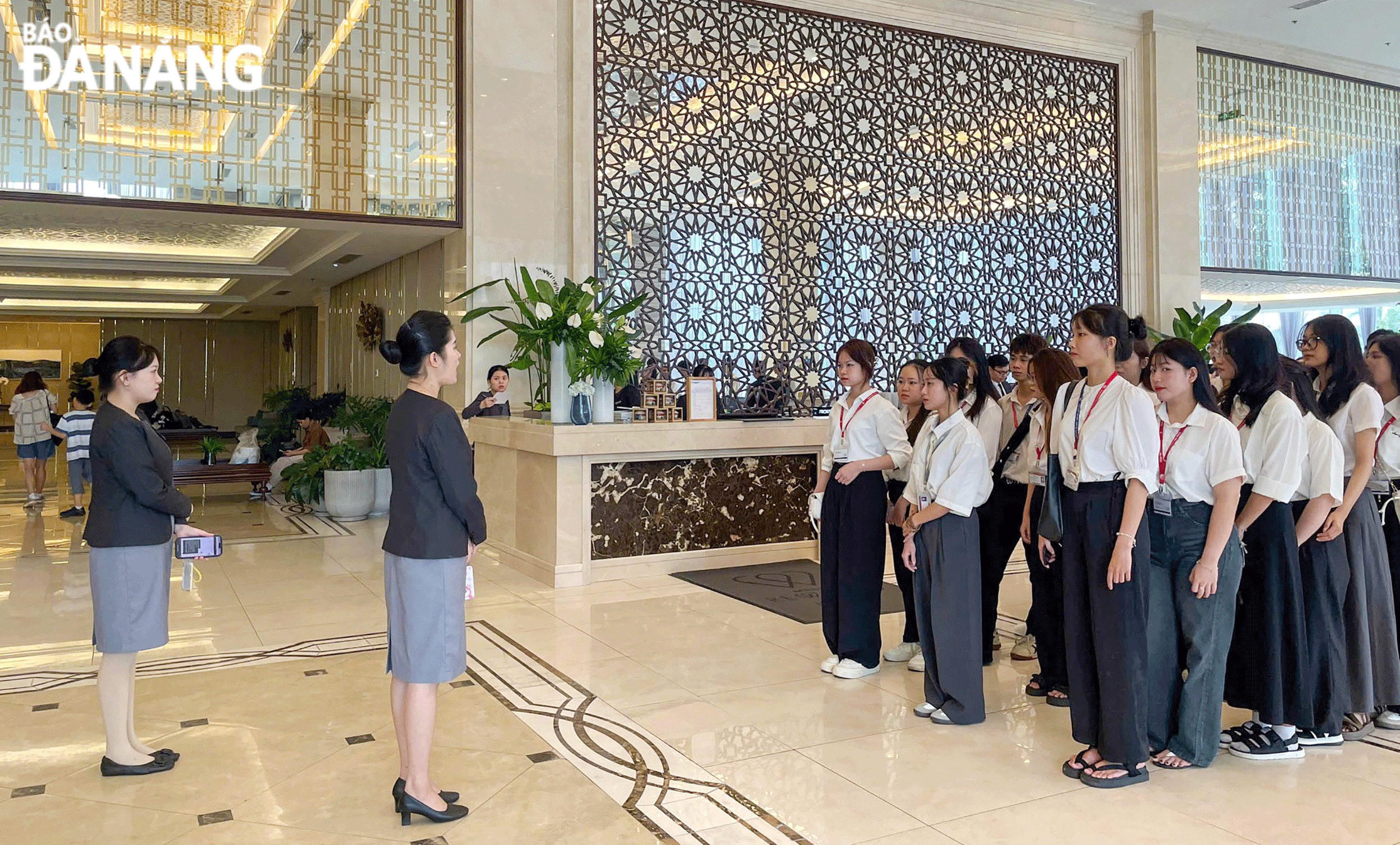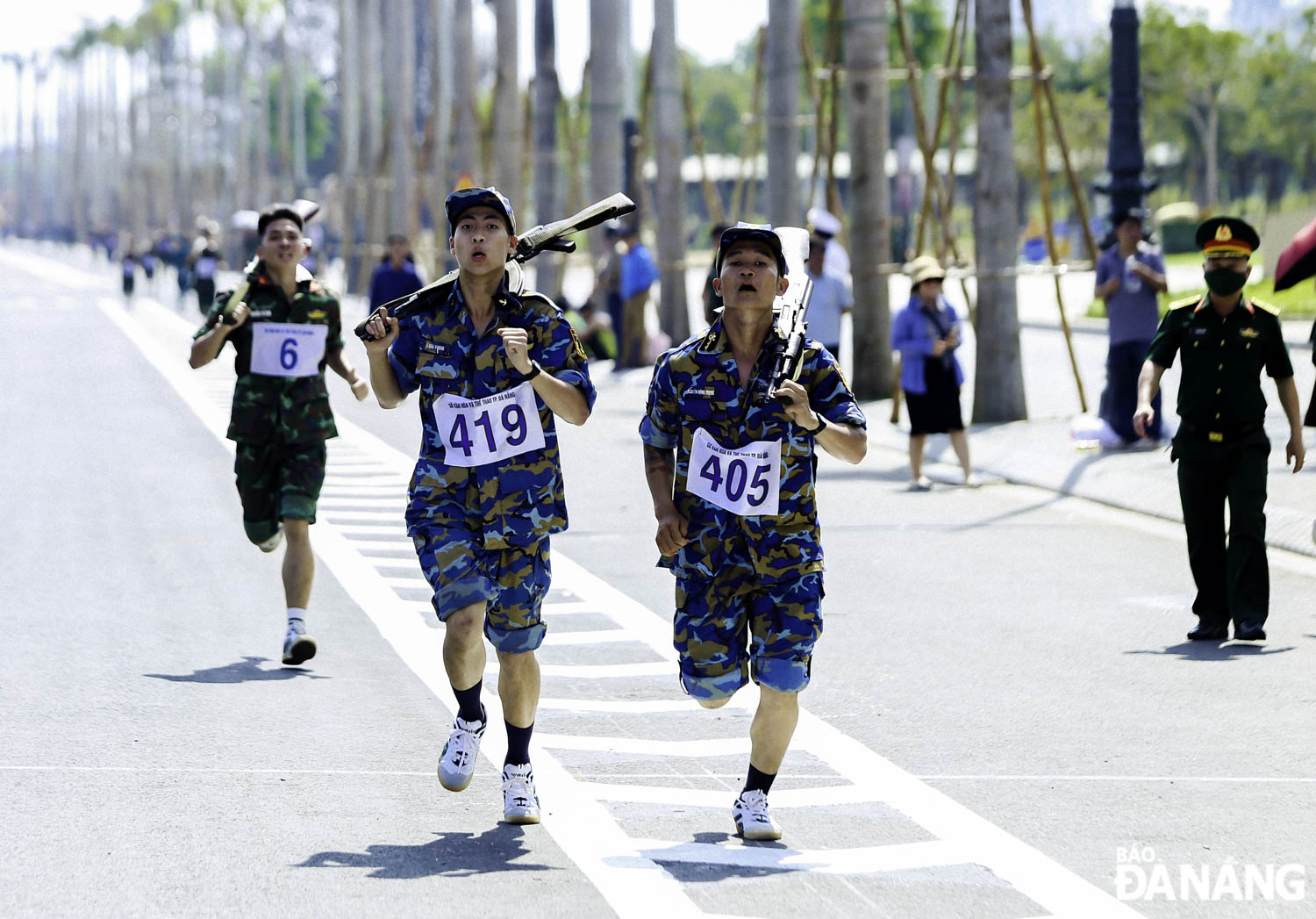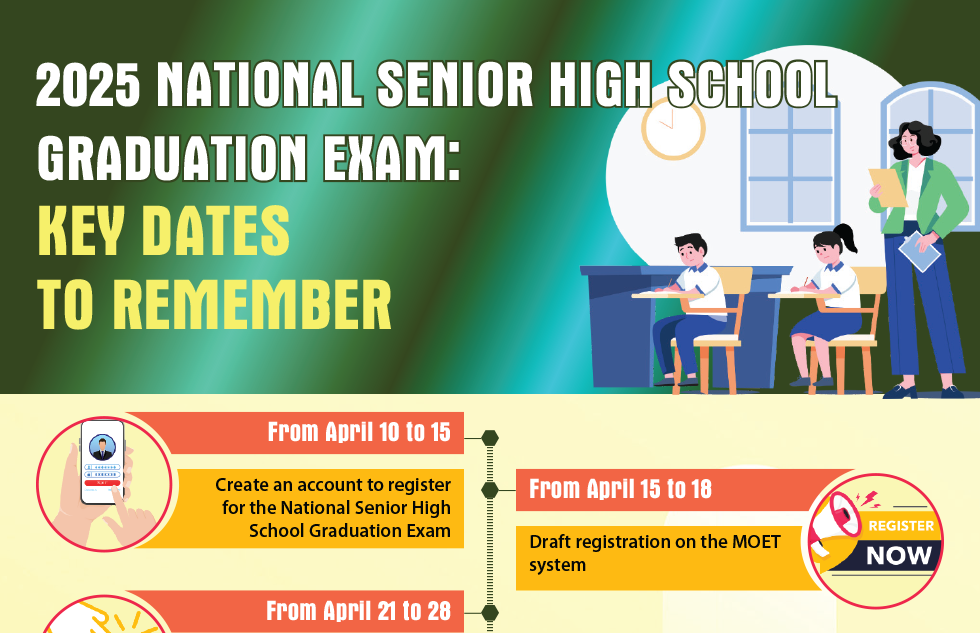Linkage with enterprises needed in human resource training for Da Nang hospitality industry
Human resource development is one of the important solutions to promote local tourism. Da Nang houses many colleges and universities that annually provide the market with a large number of human resources. However, the schools need to promote linkages with businesses in training to create more high-quality human resources in the hospitality industry, thereby meeting actual labour needs.
 |
| Students of the School of Tourism under the Duy Tan University have a real-life experience at the Melia Vinpearl Hotel. Photo: NGOC HA |
Human resources for hospitality industry
As of October 2024, the city had 32 training institutions at college, university and postgraduate level, and 61 vocational training establishments, offering abundant human resources for the tourism industry.
The University of Economics - the University of Da Nang provides the tourism market with an annual average of more than 300 students majoring in tourism business administration, hotel management and event management. The rate of students having jobs within 12 months of graduation reaches over 98%.
Similarly, the Da Nang Vocational Tourism College has a training scale of 1,000 - 2,500 students and provides the labour market with 300 - 900 students per year in the fields of hotel management, resort management, restaurant management, travel management, MICE tourism management, tour guiding, culinary techniques, English tourism interpretation, and multimedia communications.
Meanwhile, the School of Tourism under the Duy Tan University offers the labour market with hundreds of high-quality students well-trained in more than 12 diverse majors, from tourism and hotel management, international hotel management, tourism and travel management to specific majors such as tour guide (English, Chinese and Korean languages), tourism and aviation services management, event and entertainment management, smart tourism, and the entrepreneurship of small and medium-sized enterprises.
However, according to senior human resource managers in the tourism industry, most of the new graduates must be retrained by recruiters in order to meet the job requirements. Compared to other countries in the region, Viet Nam's tourism human resources still lack of soft skills, foreign language proficiency, experience, labor productivity and professionalism.
Data from the Viet Nam National Administration of Tourism under the Ministry of Culture, Sports and Tourism shows that the tourism accommodation sector is expected to need more than 800,000 workers by 2025, and more than 1 million by 2030, with an average of 60,000 additional workers needed each year. The city also identifies tourism as one of the five key economic sectors towards 2030. Therefore, tourism human resources must be properly trained and ensure quality to meet the requirements.
Strengthening cooperation between schools and businesses
Assoc. Prof. Dr. Doan Ngoc Phi Anh, Vice Rector of the University of Economics under the University of Da Nang said that the school has actively enhanced cooperation with many businesses, especially ones in the Central Highlands region, in building and developing training programmes, supporting the internships and improving the training quality for students to better meet the recruitment needs of employers.
To improve the practicality of the training programmes, the school regularly collects opinions from relevant parties, including recruiting units, in building and reviewing the training programmes to ensure that they align with the needs of businesses. The school has 4 training majors with specific orientations (e-commerce, management information systems, tourism and travel management, hotel management), in which the rate of participation in the curriculum of businesses accounts for 30-50%.
Aside from cooperating with businesses in teaching courses, the school has increased coordination with businesses to organise career orientation sessions for students, and sign cooperation agreements with many tourism firms, especially hotel and resort corporations such as Sungroup, Vingroup and hotel management brands such as Marriott and Vinpearl.
Meanwhile, the Da Nang Vocational Tourism College has increased the signing and implementation of cooperation agreements with tourism businesses like Shilla Monogram, The Five Villas & Resort Quangnam Danang, and New World Phu Quoc Resort.
Master Nguyen Duy Quang, Principal of the college, said that the content of the agreements has been increasingly expanded and deepened in enrollment, dual training coordination, creating part-time jobs during study time, and official work after graduation for students.
In addition to cooperation with domestic units, many universities have promoted international student and internship exchanges to help students hone their skills and improve foreign languages.
Dr. Bui Kim Luan, Vice Principal of the School of Tourism under the Duy Tan University said that in order to continue to carry out the mission of improving the quality of education and helping students reach further in the international labour market, the school has carried out the PSU standard training programme, transferred from Pennsylvania State University - one of the world's leading universities in the field of tourism.
In particular, through the P2A (Passage to ASEAN) programme, students can participate in academic and cultural exchange activities in ASEAN countries. Moreover, the school also cooperates with partners in South Korea, Macau and many other countries to implement exchange programmes. The school is implementing internship programmes in Hong Kong (China) and more than 50 leading hotels in Thailand.
“To have a quality tourism workforce, the connection between schools and businesses is essential. In particular, international-standard training programmes help students not only master theory but also practice soft skills, especially foreign language skills. Furthermore, students study in a system of international-class facilities, including 5-star simulation practice rooms. This provides students with an ideal learning environment to get ready to enter the competitive labour market,” Dr. Bui Kim Luan shared.
Reporting by NGOC HA - Translating by M.DUNG







